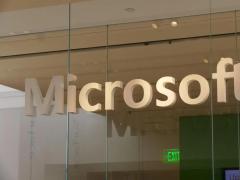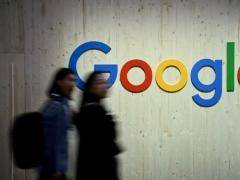Alphabet (GOOGL.O) exceeded second-quarter revenue and profit estimates on Tuesday, thanks to a surge in digital advertising sales and strong demand for its cloud computing services. However, the company indicated that capital expenses would remain high throughout the year.
Alphabet's results highlight a robust demand for digital ads, fueled by events like the Paris Olympics and elections in several countries, including the U.S. Additionally, a recovery in enterprise spending has bolstered its software business.
The cloud segment saw significant growth driven by the widespread adoption of generative artificial intelligence technology. Advertising sales, Alphabet's primary revenue source, increased by 11% to $64.6 billion, with the company utilizing customer data to enhance ad targeting.
For the quarter ending June 30, net income rose by 28.6% to $23.6 billion, surpassing the average estimate of $22.9 billion.
Investor reactions were mixed. Initially, shares rose about 2% before dipping by a similar amount, despite having gained over 30% this year, outperforming the tech-heavy Nasdaq Composite Index, which rose by 20%.
Ido Caspi, a research analyst with Global X, remarked, "This was another stellar quarter from Google with beats across the board," citing ad sales and AI offerings as key drivers.
Total revenue grew by 14% to $84.74 billion, exceeding analysts' consensus estimate of $84.19 billion, according to LSEG data. YouTube ad sales increased by 13% to $8.67 billion. Revenue from cloud computing services, a critical indicator of enterprise technology spending health, rose 28.8% to $10.35 billion, surpassing analysts' expectations of $10.16 billion.
Alphabet reported capital expenditures of $13 billion for the June quarter. Ruth Porat, in her final conference call as Alphabet's CFO, informed investors that quarterly capital expenditures would remain at or above $12 billion for the rest of 2024.
In the previous quarter, capital expenditures had jumped 91% to $12 billion, causing concern among investors.
Like its competitors, Alphabet is aggressively rolling out AI offerings amid significant investor interest in the technology. However, some of its AI searches have led to embarrassing results, such as the infamous suggestion to use glue on pizza to hold the cheese better. In response, Google scaled back the technology in May to address these issues.
Alphabet CEO Sundar Pichai stated that the technology would be expanded to more countries, with AI products expected to drive revenue through cost-cutting and increased efficiency, although no timeline was provided.
Despite increased regulatory scrutiny, Google has been pursuing significant acquisitions, including a roughly $23 billion bid for cybersecurity firm Wiz. However, Wiz announced on Monday that it was walking away from the deal to pursue an IPO instead. Google also considered acquiring HubSpot, which would have positioned Alphabet against Salesforce, Oracle, and others in the CRM market, but ultimately decided against it.
On Monday, Google announced plans to retain third-party cookies in its Chrome browser, reversing its previous pledge to phase them out. This decision followed concerns from advertisers about the impact on their ability to personalize ads without cookies.
Sales from Alphabet's "other bets," including experimental projects and the self-driving car unit Waymo, rose 28% to $365 million. Porat revealed that Alphabet is planning a multi-year $5 billion investment in Waymo, as rival Cruise works to return to U.S. roads after a high-profile accident in October.

